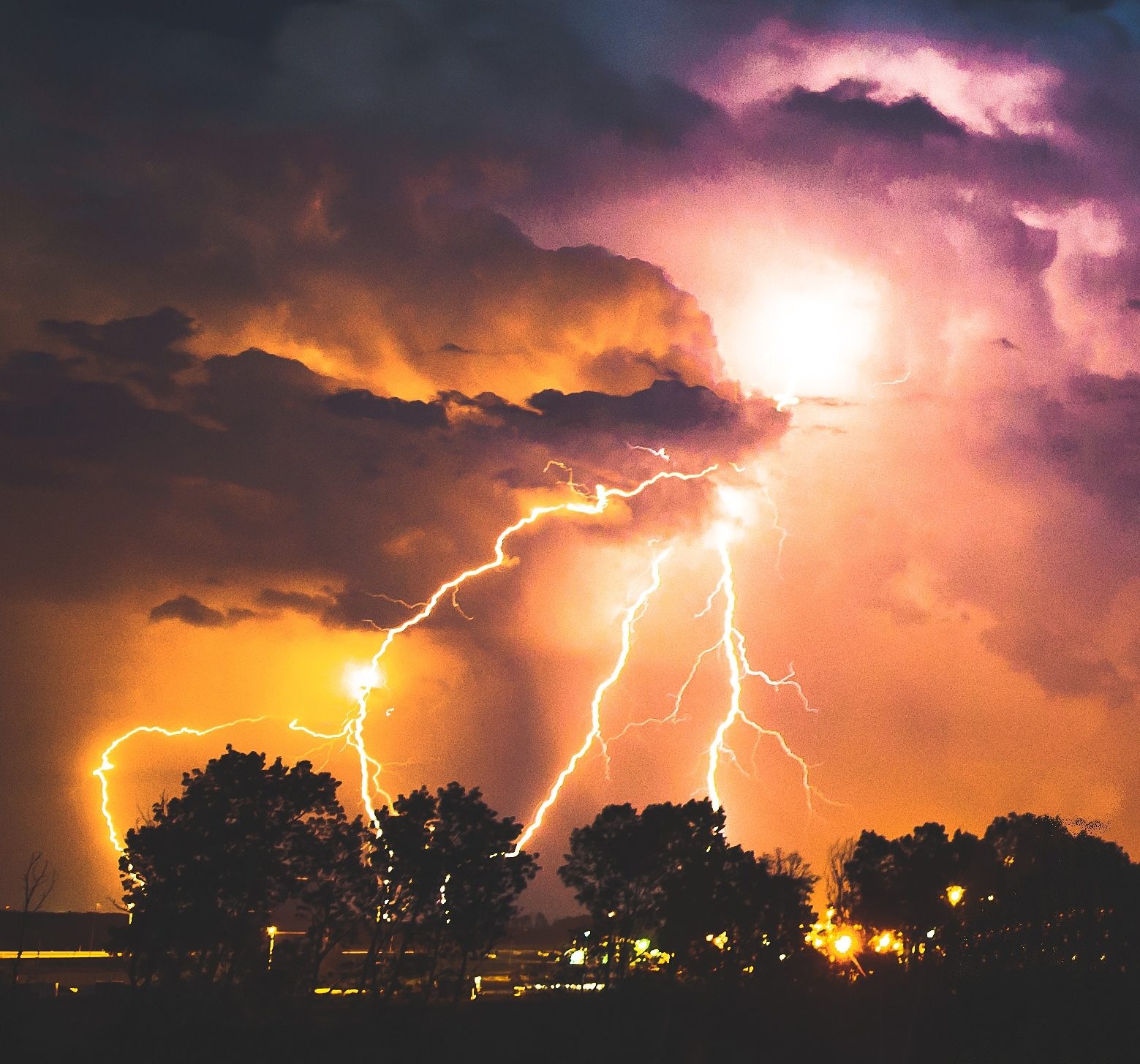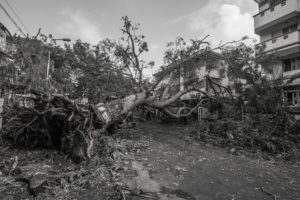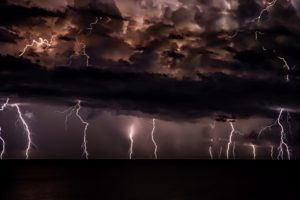
Do you know what to do before, during and after a storm to prevent and prepare for storm damage? Do you know what qualifies as storm damage under your insurance policy? If you answered no to either of those questions, you’re not alone. Check out the tips below to prepare you and your family for any storm damage headed your way.
Steps to take before or during a storm to prevent damage:
- Place sandbags around your home. This is more important if you home is at the bottom of a hill or on a river plane.
- Place towels at base of doors. This prevents water from getting inside your home.
- Clear area around gutters. Try to keep the area around your gutters clear – but remember! Safety is more important here.
- Move valuables. Keep your valuables away from any windows and doors. You could even bring them to an upstairs level if your lower levels are prone to leaking water.
Steps to take after storm damage
- Be safe! Heavy rains and high winds can cause physical risks to the outside of buildings. For example, rain can collapse a roof, and wind can blow down a tree. Moisture can also seep into carpet and even furniture and can put your family at a risk for mold later down the road. Broken glass, or nails around the property are smaller hazards to look out for.
- Take pictures of the storm damage. Once you have determined the area is safe, take pictures of the damage for you insurance company. Taking pictures helps ensure you get fully compensated for the damage.
- Contact your Risk Advisor and/or insurance company. Notify your Risk Advisor or insurance company as soon as you can. An adjuster will be sent out to determine the amount of damage so payment can be made.
- Review your insurance policy. Look over your policy at least once a year to know what is covered. Make sure you look at your coverage limits (maximum amount your insurance company will pay out), deductible (the amount of money you will need to pay out of pocket), exclusions (claims not covered by your policy), dwelling coverage (typically covers damage to the outside of your home), and personal property coverage (structural damage, or anything damaged inside of your home). If you have any questions about your policy, make sure you talk to your Risk Advisor so you can be prepared.
What qualifies as Storm Damage?
- Water damage. A good rule of thumb for weather related water damage is that there must be damage to the structure from an “event”, a tree, wind breaking a window or taking off shingles. Insurance does does cover leaky roofs or baseball walls. Water damage that leaks in a basement, a recessed window or even an open window that causes damage would not be covered.
- Wind damage. Powerful gusts of wind can take off shingles and siding, and even sometimes whole roofs. It can also damage windows, doors, and anything else that is on the outside of your home. Damage caused by hail and falling trees is also usually covered.
- Lightning strikes. Lightning can cause smoke damage and power surges. Power surges end up ruining electronics and wiring in your home – or can even start an electrical fire.
Main reasons for rejected claims:
- Negligence. Negligence is the most common reason claims are rejected. The adjuster will look for signs of improper maintenance while looking at the damage. For example, if shingles on the roof look like they are damaged or worn out already before the storm, the adjuster will reject that the damage to your house was due to the storm. The best way to minimize this from happening to you, is to keep up with regular maintenance and replace worn out materials as soon as you can.
- Flooding. Flooding is typically not covered by homeowners insurance and you will need additional flood insurance for your home. This includes rising waters from rivers or lakes, flowing water from torrential downpours, and even water that backs up into your home from plumbing systems. Click here to find out more about flood insurance, or call your Noah Insurance Group Risk Advisor.
Now that you took your crash course in storm damage, make sure you are prepared in the event of a storm. To make sure you and your family are covered in the event of a storm, ask to go over your homeowner insurance with your Risk Advisor at Noah Insurance Group. Get a quote here, or call any of our offices today:
AMERY: 715-268-6624
CUMBERLAND: 715-822-3355
FOREST LAKE: 651-464-2168
OSCEOLA: 715-294-2510
PRESCOTT: 715-262-3216
STILLWATER: 651-430-0085
OR


